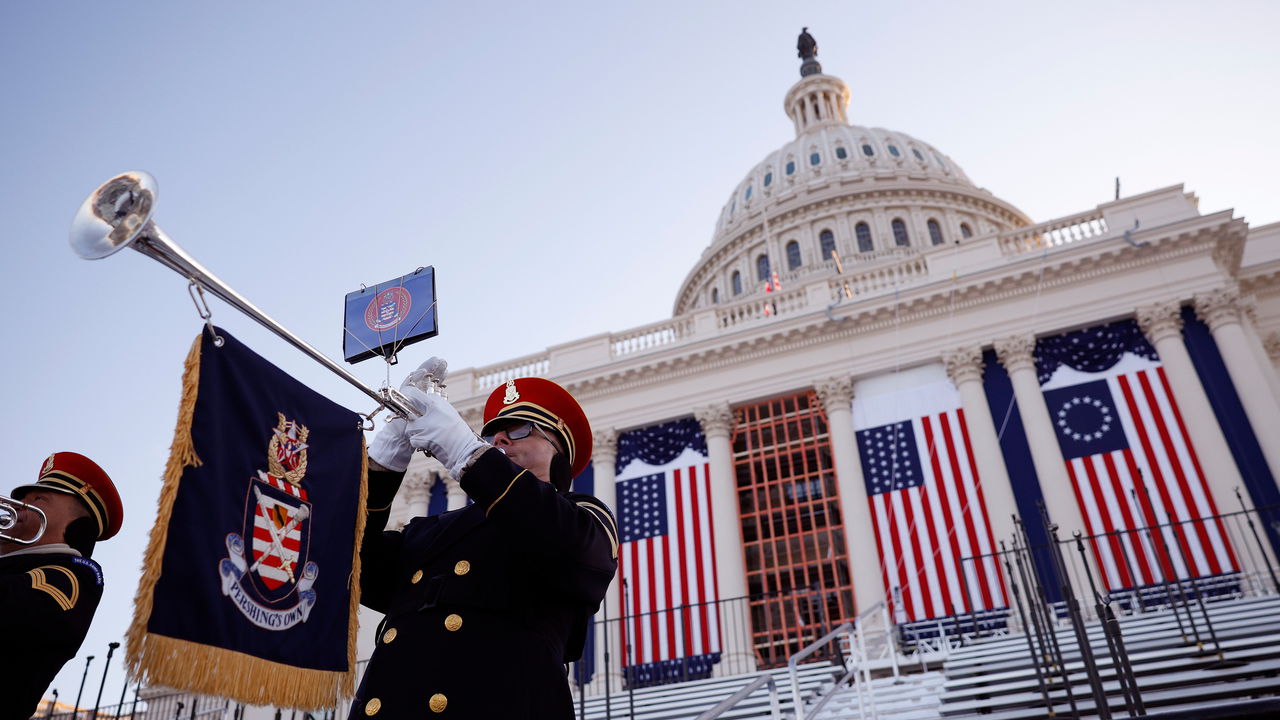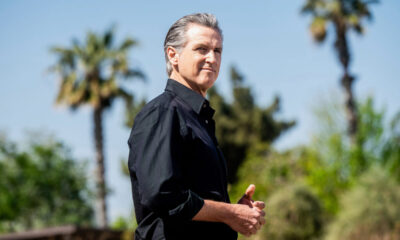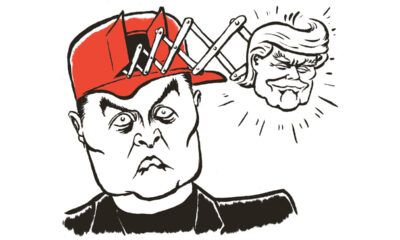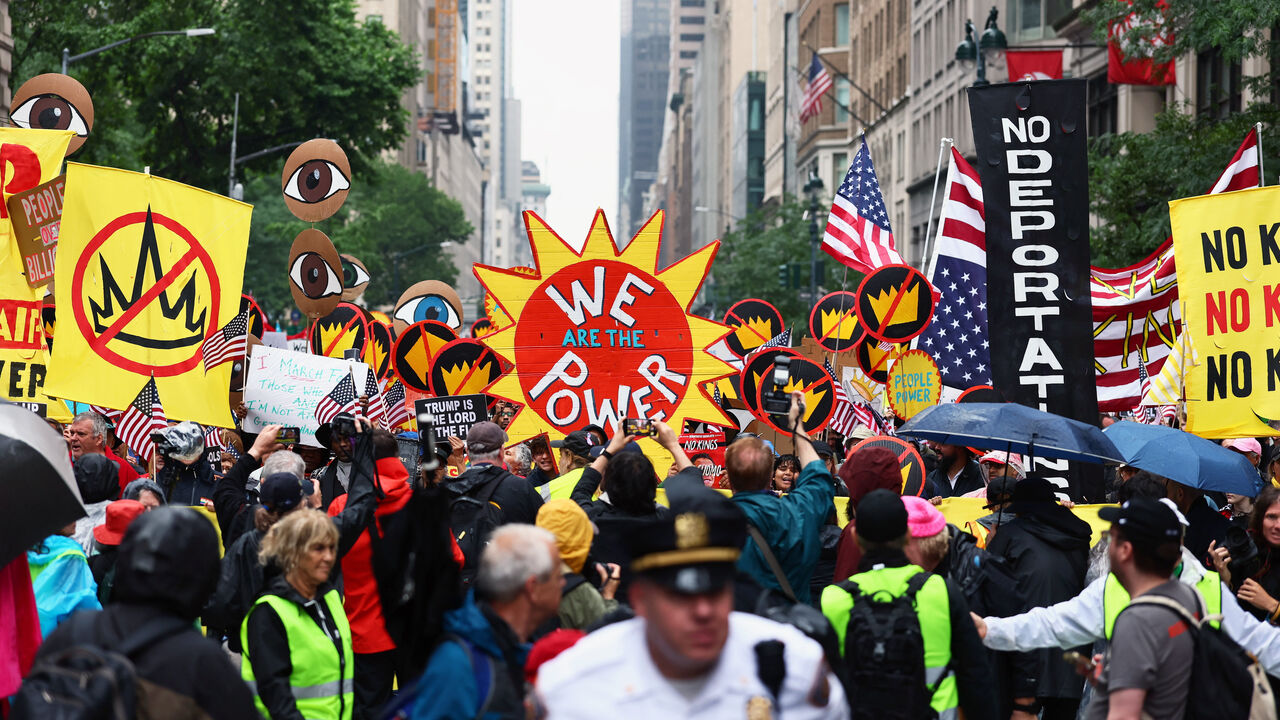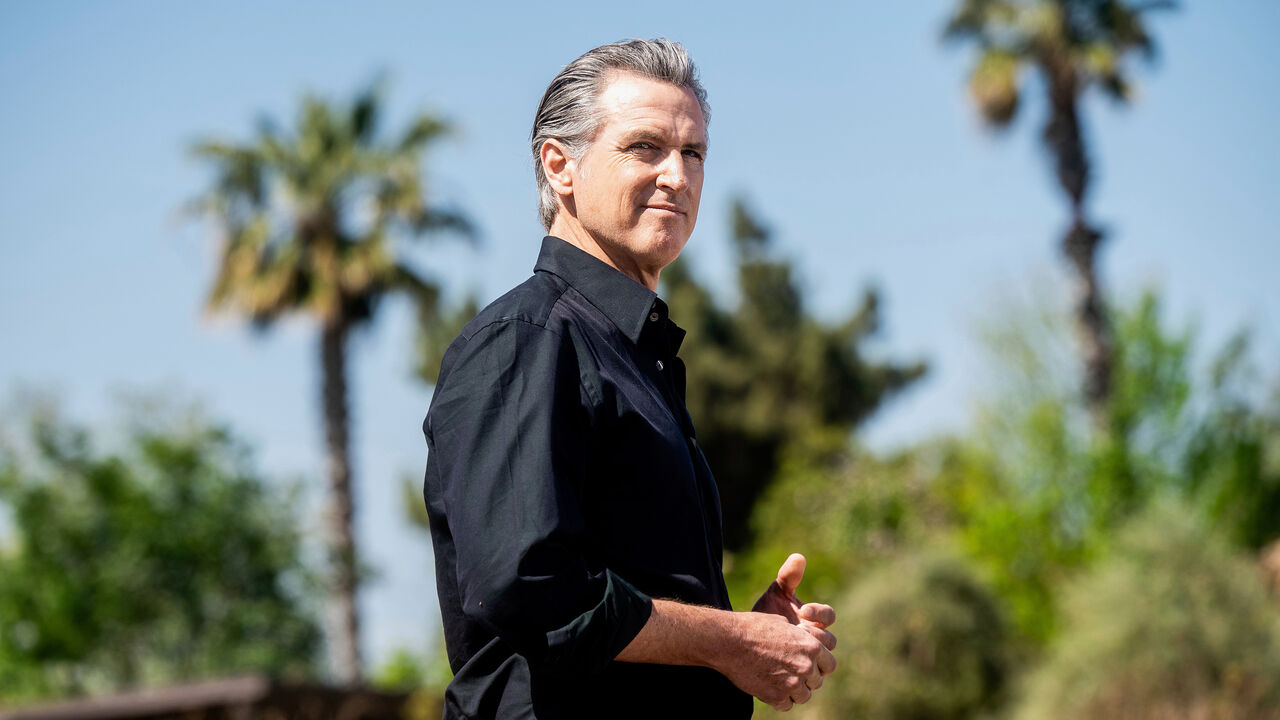THE MOST jarring difference between Donald Trump’s first and second inaugurations will be the setting. Eight years ago he spoke in front of the Capitol building on a relatively mild January day, but frigid temperatures have pushed the ceremony inside for the first time in 40 years. A closer look at plans for this scaled-back event also offers hints at some of the profound contrasts between 2017 and 2025.
Mr Trump’s vice-president will be sworn in first. Last time he had at his side the steady hand of Mike Pence, a living embodiment of the orthodoxies of Reagan Republicanism. Mr Pence had spent more than a decade in the House of Representatives before serving as governor of Indiana for four years. He knew the ways of Washington and was friendly with all of the party’s core constituencies: free marketeers, social conservatives and foreign-policy hawks. His choice was a sign of humility from Mr Trump meant to reassure his party after a hostile takeover.
His choice this time around sent the opposite message. J.D. Vance, 40-years-old, has half as much experience as Mr Trump as an elected official in Washington. He spent his brief time in the Senate challenging the foundations of Republican thought on international relations and economics. His elevation is a sign that Mr Trump is self-assured enough to not need a guide so much as an attack dog and loyal servant—something he believes Mr Pence was not in the aftermath of the 2020 election.
Others who will be present—or at least those invited before the guest list was radically reduced—are evidence of the great paradox of Mr Trump’s second term. While he is less constrained, he takes office with much of America and the world seemingly less anxious about him in power.
Mr Trump was something of an international oddity in 2016. Some, like the prime minister of Japan, swiftly adapted to the new reality and visited Mr Trump in New York. This time Mr Trump has a broader international fan base. Javier Milei, the president of Argentina, plans to attend, along with Italy’s prime minister, Giorgia Meloni. The Chinese Communist Party will send the country’s vice-president, and India’s foreign minister will be there as well. Mr Trump had been conducting shadow foreign policy for weeks—with his advisers playing a role in the Gaza ceasefire—so it comes as no surprise to see such a broad guest list from abroad.
The American public’s reaction also has been starkly different. Rather than the palpable sense of dread apparent in January 2017, the streets are filled with tourists and there are parties taking place throughout the city. Organisers of an anti-Trump protest in Washington had hoped some 50,000 people might show up; around 5,000 did. Snoop Dogg, once a Trump critic, performed at the Crypto Ball (the president-elect, naturally, launched a new cryptocurrency the same day, called $TRUMP). The below-freezing temperatures should help to maintain this collective shrug from Mr Trump’s detractors. While the streets will probably be quiet, the rotunda, where Mr Trump will be sworn in, will be packed tight with America’s elite.
Mr Trump is at the peak of his power, before he has had to do anything unpopular, or disappoint any of the factions competing for his attention. Mark Zuckerberg, Jeff Bezos and Elon Musk—all open Trump critics during the first term—have struck friendlier notes and are set to attend the inauguration. Even Bill Gates recently said he was “impressed” with the new president. Towards the end of the campaign, Forbes estimated that Kamala Harris had support from 83 billionaires to Mr Trump’s 52. Since winning, many business titans have been more open. “Everybody wants to be my friend,” Mr Trump observed in December. No doubt he is aware that much of this is self-interest as his administration is set to write new regulations and retire old ones, all of which could directly affect profit margins.
Also in attendance will be Mike Johnson, the House speaker, and John Thune, the Senate majority leader. For all his rage against the deep state and his own advisers who he believed undermined him last time around, Mr Trump also had his fair share of scuffles with Congress. More deftly handling the politicians on the other end of Pennsylvania Avenue will be as important for the Trump agenda as his war against the entrenched bureaucracy.
Here Mr Trump has made more effort in the run up to his second term. He personally intervened to ensure Mr Johnson remained speaker, and he has hosted various factions of Congress at Mar-a-Lago to talk strategy. Mr Trump is always unpredictable, but co-ordination has improved. For example, some executive actions may be delayed so that revenue savings can be passed by Congress and counted against revenue losses from tax-cut extensions. This may be the fate of Joe Biden’s ill-conceived executive order on student-loan bailouts.That does not mean the beginning of the new presidency will be quiet: expect a flurry of executive orders on immigration and trade right away.
Yet Mr Biden also issued plenty of executive orders on day one. Looking at them now–the reversal of the Muslim ban, the Covid-19 eviction moratorium, the whole-of-government initiative on racial equity–is like finding a time capsule buried in 2020. It is also a reminder that lasting change cannot be made by presidential fiat. To endure, policies need backing from Congress.
And while the Republican Party is very much outwardly MAGA—and agrees on cutting taxes, restricting immigration and bolstering energy production—many pre-Trump orthodoxies prevail. As he works with Congress, Mr Trump may find himself giving way to policies that don’t seem particularly revolutionary. “The striking thing about Republicans in Congress now is that they’re pretty recognisable” when compared to their Obama-era predecessors, argues Yuval Levin, a senior fellow at the American Enterprise Institute, a think-tank, and alumnus of George W. Bush’s administration. “They haven’t changed as much as you would think, given how different Trump is from where Republicans have been before.”
The Senate will also play its traditional role of slowing down an ambitious president’s goals; it’s entirely possible that only Marco Rubio, nominee for secretary of state, will be approved on the first day of the Trump administration. Matt Gaetz, the controversial pick for attorney general, already saw his nomination collapse. Others could too, depending how they fare in their hearings.
Mr Trump will move rapidly; the question is whether his policy changes stick. The beginning of the end of the Trump era will kick off with large-scale deportations on Tuesday, once the inauguration festivities have come to a close. Once the initial shock and awe have worn off, it will be on Mr Trump to fight tougher battles of persuasion to create a real legacy.■

 Economics1 week ago
Economics1 week ago
 Economics1 week ago
Economics1 week ago
 Economics1 week ago
Economics1 week ago
 Finance1 week ago
Finance1 week ago
 Blog Post1 week ago
Blog Post1 week ago
 Economics1 week ago
Economics1 week ago
 Personal Finance1 week ago
Personal Finance1 week ago
 Economics1 week ago
Economics1 week ago
